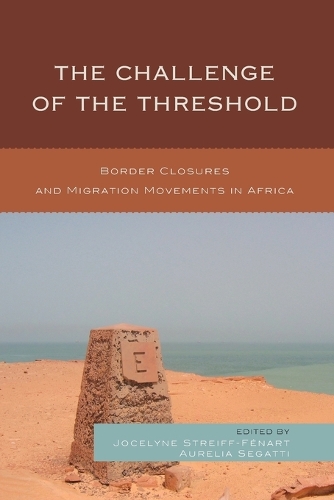
The Challenge of the Threshold: Border Closures and Migration Movements in Africa
(Paperback)
Publishing Details
The Challenge of the Threshold: Border Closures and Migration Movements in Africa
By (Author) Jocelyne Streiff-Fenart
Edited by Aurelia Segatti
Contributions by Julien Brachet
Contributions by Lorenzo Gabrielli
Contributions by Paolo Gaibazzi
Contributions by Elise Palomares
Contributions by Anak Pian
Contributions by Philippe Poutignat
Contributions by Catherine Quiminal
Contributions by Joris Schapendonk
Bloomsbury Publishing PLC
Lexington Books
17th October 2013
United States
Classifications
Professional and Scholarly
Non Fiction
African history
Regional / International studies
304.8096
Physical Properties
Paperback
288
Width 153mm, Height 230mm, Spine 21mm
431g
Description
The recent containment policies aimed at regulating immigration flows towards Europe have profoundly altered the dynamics of migration in Africa. The impact of these policies is apparent in the redefinitions of the routes, itineraries and actors of migration. But their effect can also be felt in migrant categories and identities and in the perceptions of migrants in the societies through which they transit or the communities which they have left behind. By placing the problem of border control at the very heart of the migration issue, the policies aimed at the restriction of migration flows have changed the meaning and significance of migration. More than ever before, both migrants and institutions in charge of border control construe migration mostly around the challenge of border-crossing.
In the Global South, the transit situation in which would-be border jumpers are retained blurs the distinction between temporary migration and settlement. This contributes to change, in various ways, the relationship to strangers, from renewed forms of solidarities to the reactivation of latent xenophobic sentiment, whether around the Mediterranean or en route towards South Africa, the other migration hub on the continent.
The editors of this volume have decided to work on the notion of "threshold" as an operative concept for addressing the multiple dimensions of the issue: the discursive and conceptual frameworks that constitute the backbone of threshold policies aiming to keep undesirables beyond borders; the constitution of stopping places, intermediate areas and relay towns, which all represent threshold spaces that challenge local urban equilibria; and the experience of liminality, in which individuals caught for a time between two states (as migrant on the road and as immigrant, the state to which they aspire), experience the typically ambiguous situations characteristic of 'threshold people' (Turner). While ambitioning to innovate theoretically and methodologically, the volume is above all
Reviews
How does one live when one is stuck in a transit space and situation European national policies to control and reject transient people have created these spaces and left people trapped in inbetweenness. By focusing on transit spaces and time, this collaborative research initiative speaks to liminality itself. The volume encourages readers to question the more and more ambiguous relationships between individuals and the Nation-State, and the socio- political arrangements taking shape on the margins of states. -- Michel Agier, Centre d'tudes Africaines
How does the EUs restrictive immigration policy affect the migration processes in Africa In this volume, a group of scholars provide convincing answers to that pressing question based on thorough theoretical work and solid empirical research. A must-read for all interested in understanding contemporary human mobility. -- Martiniello Marco, Universit de Lige
This is an unusual book, drawing scholars with divergent interests, perspectives, and geographical expertise to consider the nature of migration into and out of Africa. Every reader will find individual chapters that are provocative and empirically rich. Readers who spend time reviewing all the chapters will undoubtedly come away with new perspectives on human mobility. No longer will we speak about migration in Africa as a singular or insular process. Nor will we accept simple, mechanical or economistic explanations. If nothing else, this book tell us that mobility on the continent is at once highly localized, deeply personal and shaped by global political processes. -- Loren B. Landau, University of the Witwatersrand
Author Bio
Jocelyne Streiff-Fnart Jocelyne Streiff-Fnart is director of the Research Unit on Migrations and Society at the University of Nice Sophia-Antipolis/University Paris Denis Diderot and IRD, France.
Aurelia Segatti is a senior researcher for the African Center for Migration and Society at the University of the Witwatersrand, South Africa.
